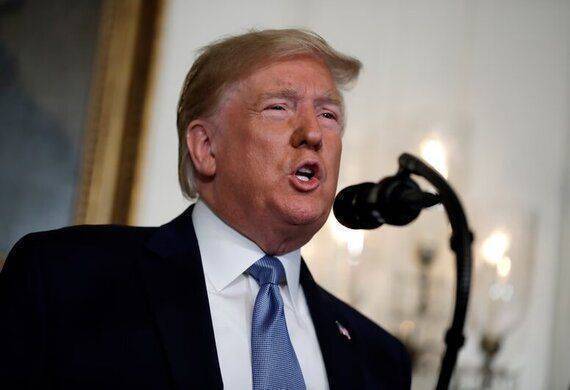Trump Issues New Threat Amid Rising US-China Trade Tensions
By Global Leaders Insights Team | Oct 15, 2025

In response to Beijing's refusal to purchase American soybeans, US President Donald Trump has stated that his administration is considering "terminating business with China having to do with cooking oil".
Key Highlights
- Trump threatens 100% tariff on Chinese goods, citing China's soybean purchase halt as retaliation.
- China warns of "corresponding measures" if U.S. persists with high tariff threats.
In a post on his social media platform Truth Social on Tuesday, Trump described China's actions as a "Economically Hostile Act" by "purposefully not buying our soybeans, and causing difficulty for our soybean farmers."
He proposed that ending trade in cooking oil and "other elements of trade" could be used as "retribution" against China. "As an example, we can easily produce Cooking Oil ourselves, we don't need to purchase it from China," according to him.
China has traditionally been the largest buyer of US soybeans, importing approximately 27 million metric tons worth nearly $12.8 billion in 2024. However, due to a simmering trade dispute, Beijing has not purchased any US soybeans since May.
The lack of Chinese purchases has been exacerbated by China's retaliatory tariffs on American goods, which have raised soybean prices for Chinese importers. As a result, China is increasingly importing soybeans from South American producers, including Argentina.
On the same day that the Trump administration announced a $20 billion currency swap to help Argentina's economy, Argentine President Javier Milei paid a visit to the White House.
In 2024, China's exports of used cooking oil reached record levels. The United States of America accounted for 43% of total exports.
Also Read: U.S. and China Hold Talks in Spain on Trade and TikTok Deadline
Trump's post comes after a series of critical remarks about China in recent weeks, which have raised concerns about the status of ongoing trade talks and sparked market volatility. Following the announcement, the S&P 500 index fell, ending the trading day lower after a volatile session.
Stocks fell sharply last week after President Trump threatened to impose significantly higher tariffs on Chinese imports in response to new export controls on rare earth minerals. Later, he announced a potential 100% tariff on Chinese goods beginning on November 1. However, over the weekend, he appeared to temper his remarks, writing: "Don't worry about China; everything will be fine!"
The latest comments highlight the ongoing tensions between the world's two largest economies, as well as the challenges that US farmers face when exporting to China.


